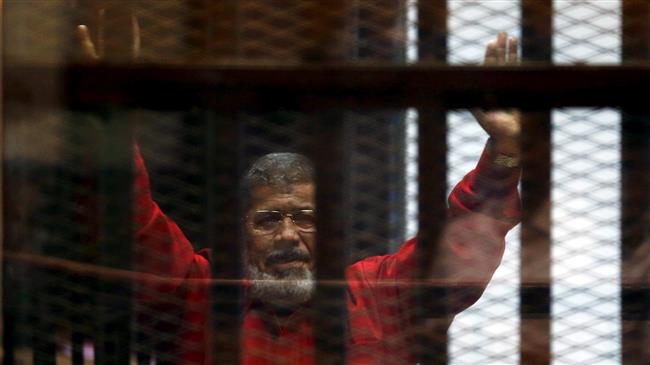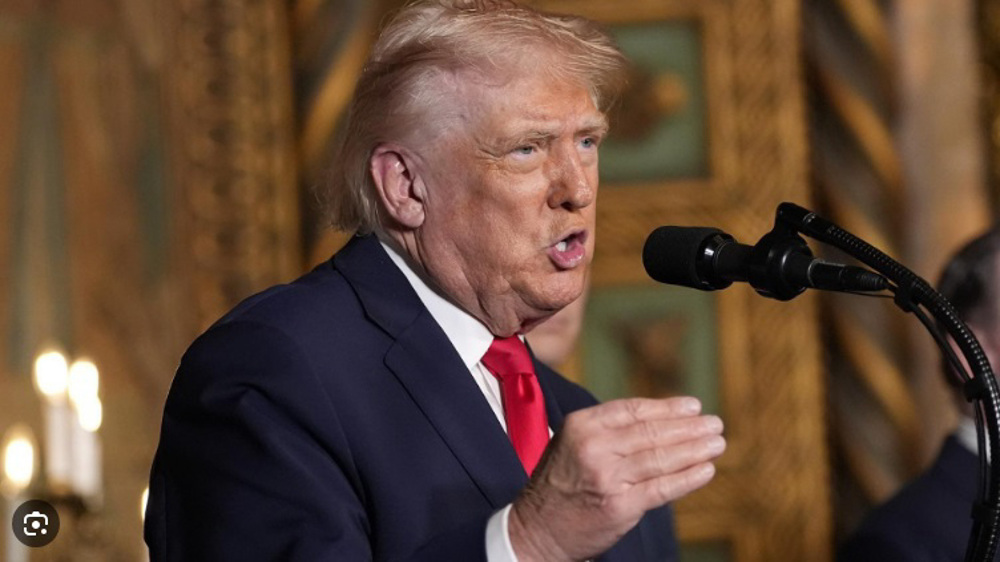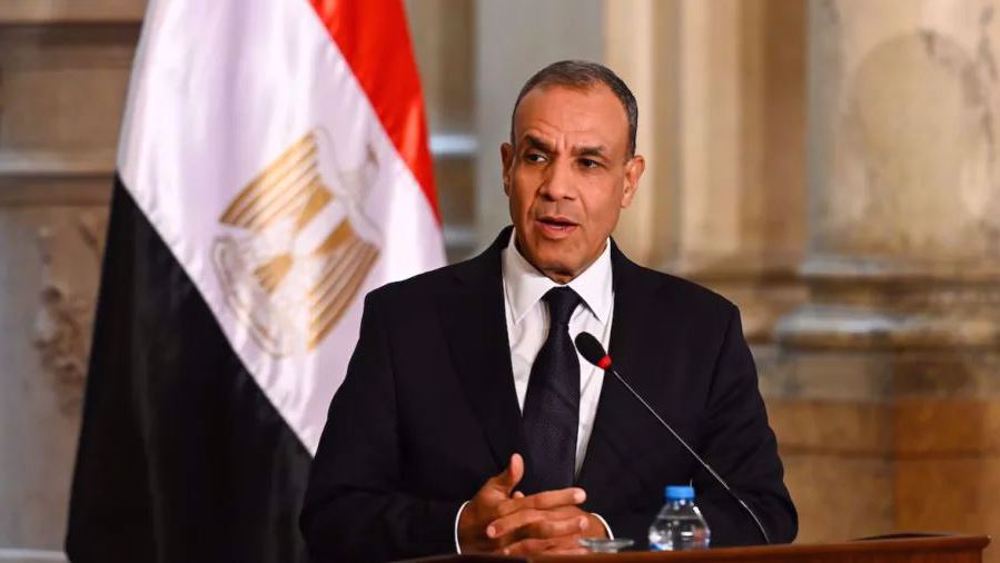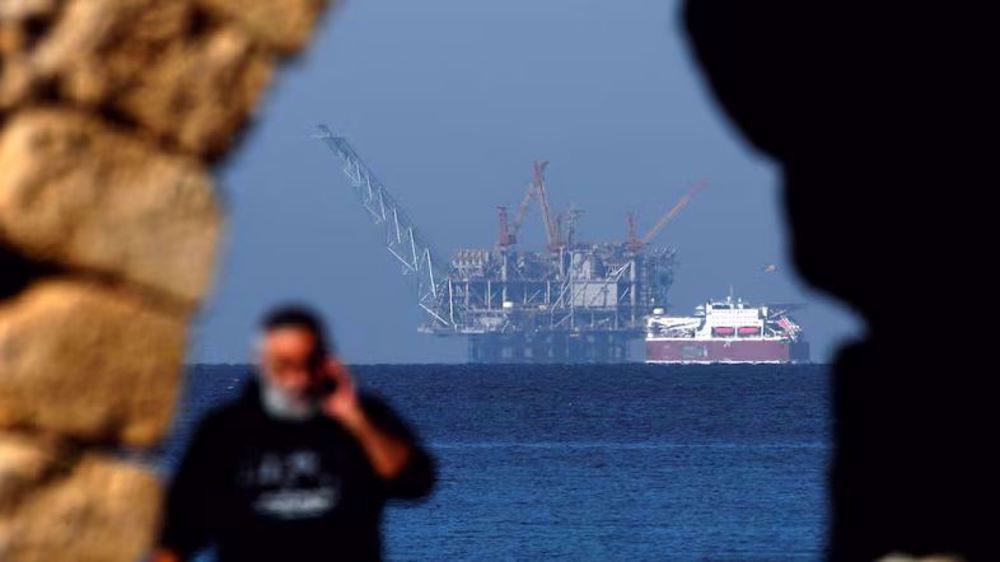Morsi knew West would never allow Muslim Brotherhood to rule Egypt, family says
The family of Egypt’s first democratically elected president, Mohamed Morsi, says the deposed leader well knew that the West would never allow the Muslim Brotherhood organization to rule the Northeastern African country, and that he was aware from “day one” that he would not be allowed to complete his presidential term.
“Even though the Islamic project is open, civilized, valuable and stands for peaceful coexistence, he knew that countries in the region would hinder its progress,” Morsi’s widow Naglaa Mahmoud told London-based online news outlet Middle East Eye (MEE) in an email exchange.
She added, “And that he might be killed and neither [long-time dictator Hosni] Mubarak’s institutions nor the deep state and its corrupted members would accept him. Morsi was honest, and he believed in a free, democratic, civil and Islamic project”.
Despite this, Morsi “tried to count on the will of the people and the aspiration of the masses”, Mahmoud said.
“As for me, I did not expect that to happen, but I used to believe what he said because the president’s predictions were always true. However, I was ready,” she pointed out.
Morsi became Egypt's first democratically elected president in 2012; one year after the popular uprising led to the ouster of Mubarak and ended his 30-year rule.
He was then deposed in July 2013 following mass protests and a military coup led by Egypt's former defense minister and current President Abdel Fattah el-Sisi, and was immediately arrested.
Morsi’s youngest son, Ahmed, said the family was convinced his father and elder brother, Abdullah, were murdered in a state-sanctioned scheme.
The deposed Egyptian leader died after appearing in court in the capital, Cairo, on June 18, 2019, according to authorities.
The public prosecutor said the 67-year-old collapsed in a defendants' cage in the courtroom and was pronounced dead in hospital shortly afterwards. A medical report showed no apparent injuries on his body, the prosecutor said.
Ahmed told MEE his father repeatedly complained about the danger to his life during the trial sessions, but no one responded to his calls and his health condition got worse.
“Definitely his death is not natural, and we called for an investigation that can reveal that. We still affirm that the situation needs transparency and knowledge of the truth,” Ahmed wrote.
The former president's son, Abdullah, campaigned for an international investigation into his father’s death before he died in mysterious circumstances shortly after.
Ahmed said his brother had no known medical condition before his death, which Egyptian authorities ascribed as a heart attack.
“He was not suffering from any chronic disease. We do not know the real causes for Abdullah's death, but what we know is that his death was mysterious, as he died outside the house after he left the prayer and in his car, and was taken to a hospital far from the place,” he said.
Ahmed also emphasized there were two strangers at the scene of Abdullah’s collapse.
“There was a man and a woman whom Abdullah did not know at the scene of the accident. They took him to the hospital in an excitable and mysterious manner, placing more suspicions, and this is proven even by the security authorities. Abdullah's death was not natural, and it also needs to be investigated,” he said.
Separately, Yehia Hamed, Egypt's former investment minister under Morsi who is now in exile, said he was in close touch with Abdullah before his death.
“Abdullah died shortly after he privately gave crucial evidence about his father’s death to the United Nations,” Hamed said.
“I was in close contact with Abdullah Morsi and I am convinced that it was his very brave work with the United Nations that led to his death,” he added.
There have been various reports over years that Morsi had been mistreated and tortured in jail, with activists saying his death should be seen in context of the Egyptian authorities' systematic isolation and mistreatment of political detainees.
Human Rights Watch at the time called the news of Morsi's death “terrible” but “entirely predictable”, citing the Egyptian government's “failure to allow him adequate medical care.”
Ahmed noted that the authorities refused to allow his father and brother be buried at the family's cemetery, and that both burials took place at night.
“They prevented praying in the mosque, and against the wishes of the president [Morsi] they did not bury him in his hometown. It was the same situation with Abdullah,” he said.
Ahmed’s other older brother Osama was arrested on December 16, 2016 on charges of planning to organize anti-government protests. His family's legal team roundly dismissed the charges, describing them as trumped up.
Ahmed said the sole reason for his arrest was that Osama was the president’s son and lawyer.
Neither Ahmed not the rest of the Morsi family have been able to visit him. The legal team representing the Morsi family has warned that Osama is in real danger of being poisoned in prison.
“Visits have been banned for years, and he is living in very harsh conditions,” Ahmed said.
Ahmed said Morsi’s family was being punished for being related to the deposed Egyptian president.
“Everything is forbidden for the family, including travel. We are placed on the ban lists only because we are the sons of Morsi, although we did not engage in any political or economic work and we have no party activity and we did not have any jobs in the country,” he said.
“But the authorities are taking revenge on us because we are the sons of the first elected civilian president, and we are punished because we are Morsi’s sons, which is an honor for us,” Ahmed highlighted.
VIDEO | Press TV's news headlines
More Europeans see Trump as 'enemy' than 'friend': Survey
Ukraine war talks begin in UAE as Russia repeats Donbas demand
Iran slams UNHRC session as illegitimate, says no submission to foreign pressure
Six-month-old boy freezes to death in Gaza amid Israel's inhumane blockade
VIDEO | Protestors in South Africa slam US interference in other countries’ affairs
Israel runs smear campaign against Doctors Without Borders: Report
Iran slams EU parliament’s ‘meddlesome, irresponsible’ resolution on terrorist riots















 This makes it easy to access the Press TV website
This makes it easy to access the Press TV website